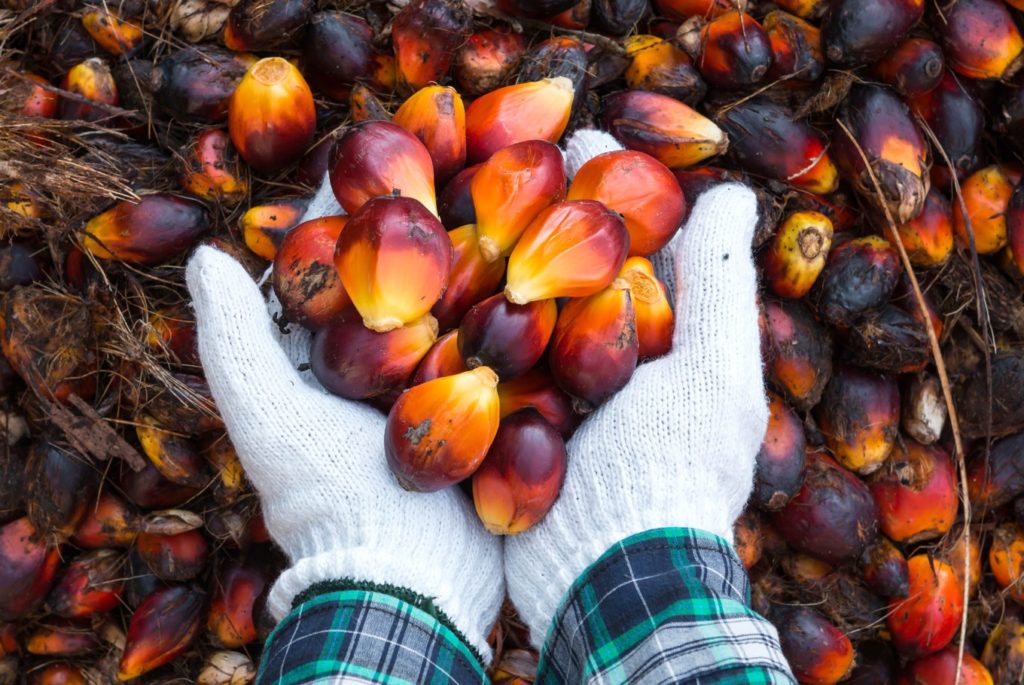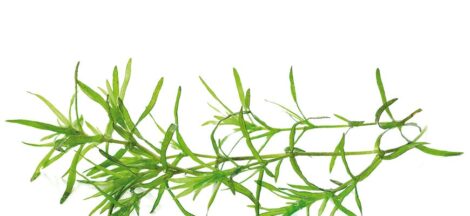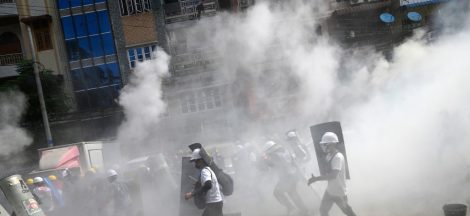Palm oil export volume up but price volatility sees value plummet. The palm oil sector is taking a cautious stance toward its export outlook as a turbulent global economy and negative sentiment toward the commodity have taken a toll on palm oil prices.

Statistics Indonesia (BPS) said early this week that the drop in global palm oil prices contributed to the country’s historic US$2.5 billion trade deficit in April, which was the largest monthly deficit since 2013.
The BPS noted that while crude palm oil (CPO) exports had increased in volume, they lost a lot of value because of price volatility. Its data shows that the country’s CPO export value decreased 27.86 percent month-on-month to US$919 million from $1.27 billion in March.
“The export value [of CPO] to a few countries improved, such as to China, but the value decreased in other countries like India, Pakistan, Bangladesh and Egypt. It decreased even further [in shipments] to Russia and Spain,” BPS head Suhariyanto told a press briefing.
Russia and Spain, Suhariyanto noted, are European countries that have been strongly influenced by the European Union’s negative campaigning against palm oil, even though Russia is not a member of the EU.
According Indonesian Palm Oil Producers Association (Gapki) data, CPO prices averaged US$530 per metric ton in April, a slight increase from the $528.40 per metric ton in March and were much lower than the February average of $556.60 per metric ton.
Gapki chairman Joko Supriyono said that given the predicament of palm oil, the association had decided to not set an export target, hoping that domestic demand would remain high and mitigate the price decrease.
He pointed to the recent move by the EU, which is currently deliberating a bill that would practically stop all palm oil imports by 2030 through its Renewable Energy Directive (RED) II, as well as economic slowdowns in some of the main buying countries, saying they were among the main causes of the continuing palm oil price volatility.
“This year will be tough on the industry after we were also weakened last year by macroeconomic elements that affected the price of palm oil,” Joko said during a recent Gapki iftar gathering. “This year’s exports will also depend on whether domestic demand increases […] then we might export the remaining CPO.”
This year’s CPO exports, he said, would also depend on the production of the commodity, which is expected rise by 2 million tons or 4.65 percent of the 2018 production at 43 million tons.
Of the 43 million tons of CPO produced, 13 million tons was absorbed by the domestic market. About 6 million tons of domestic purchases were processed into B20 fuel, a mix of 20 percent of biofuel from CPO and diesel fuel.
“It should be noted that the government’s mandatory B20 policy is not the only thing that can improve CPO prices […] however, when even stable demand can’t improve the CPO price, who knows what would have happened if [the B20 policy] had not come into effect?” said Joko.
Confirming BPS’ statement on the increase in CPO exports to China, he said CPO exports to the Asian superpower had increased 14 percent in 2018.
Gapki members have started looking for opportunities in non-traditional destinations for CPO exports, such as Iran and Japan.
The latter country, said Joko, had started importing Indonesian CPO recently to be used as an energy source, after previously only importing palm kernel oil.
“There remain challenges for us in entering these new markets. For instance, we have not managed to reach an export deal with Iranian buyers due to disagreements in the payment method,” he added. Palm oil export volume up but price volatility sees value plummet (Rachmadea Aisyah, The Jakarta Post)






 Miners Look to S. Korea, China Amid Low Investment
Miners Look to S. Korea, China Amid Low Investment 